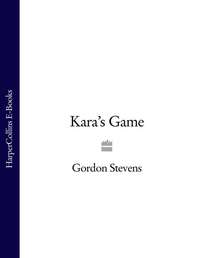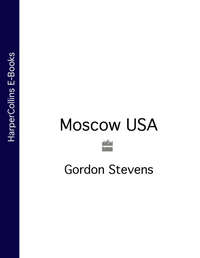
Полная версия
Peace on Earth
The meeting the next day was at St Germain-en-Laye. Nabil’s movements for the two hours prior to it were a microcosm of his movements the five days before: the false trails, the checks and cross-checks to make sure that he was not being followed.
He arrived at the quai half an hour early, spending the next twenty minutes examining the area in the quiet but efficient manner his shadows would have employed if the politics in which he was about to engage had not required him to travel alone. Ten minutes before the meeting was due he completed his inspection and returned to the side of the restaurant overlooking the river, from where he could observe both the jetty and the road leading to it.
The Citroën appeared at eleven thirty precisely. He watched as the car stopped in the parking area and the single occupant got out, locked the driver’s door, and made his way to the wooden gangplank overlooking the Seine. Only when he was as satisfied as he could be that the contact was not being followed did Nabil leave the security of his position and walk to the water’s edge. The other man heard him coming and turned to greet him.
‘Ahlan wa Sahlan.’ They embraced, kissing each other on the cheeks. It was ten years since they had last met and both showed the passing of time. ‘I have missed you.’ The greeting was traditional, between old and dear friends. ‘I have missed you more.’
They turned away from the path and walked along the wooden jetty to the line of boats moored at the end.
‘So, Khalidi, I see you are still making a reputation for yourself.’ The second man addressed Nabil by the name by which he had known him when they were children together forty years before. Nabil smiled. ‘I do my best,’ he said, ‘though sometimes it is not appreciated.’ He leaned against the wooden railings. ‘And you, Ahmad Hussein, you are also doing well. I read about your companies in the Wall Street Journal, I even have shares in you.’ Hussein laughed. ‘Insh’Allah,’ he said. ‘God willing.’
Abu Nabil looked across the water, turning, scanning the parking area, confirming Hussein had not been followed. ‘And your wife and little ones, they are still well?’
‘Rima is just as beautiful as when you suggested she should choose you not me.’ They both remembered, both laughed. They had been friends, close friends, since birth. ‘The children are also well,’ Hussein went on, knowing why Nabil was scouring the area behind them, knowing he had to. ‘Leila is playing the piano, Jamil prefers American football.’
He did not talk of the family of the man who had requested the meeting.
‘Life has been good to you,’ said Nabil. There was no malice in his voice.
‘Yes,’ said Hussein, ‘life has been good to me.’ He wondered where it was leading, why Abu Nabil had asked for the meeting.
‘And yet you have not forgotten.’ Abu Nabil drew the other man back to the single thread which linked them. ‘You still send money, still do what you can to help.’
‘No,’ said Hussein, ‘I have not forgotten.’
There was a sadness in his voice. They looked out over the river, watching the barge plough its way against the current. For the next ten minutes they stood almost motionless, talking of the old days, Nabil talking of the monies that Hussein had donated, the food and clothing he had sent unsolicited and unrecognised to the thousands who had poured into the refugee camps, the jobs he had created for the sons and daughters of the Diaspora, Hussein shrugging his shoulders, saying it was nothing, saying it was the least he could do. Meaning it.
After ten minutes they turned back, away from the river, and went to the restaurant overlooking the jetty, taking a table in the corner, away from the window.
To the waitress who served them they seemed like two businessmen discussing their affairs. In one way, at least, she was correct. Hussein was president of the company he had created twenty-five years before. Although its head office was in New York, where he had moved as the eldest son of a refugee family in the years after the United Nations had recommended the division of Palestine and the creation of the state of Israel in 1947, its activities had spawned over Western Europe and the United States, as well as the Middle East, to the point where Hussein held as much power in his chosen domain as Nabil commanded in his.
Hussein poured them each a glass of wine, and broke the bread the waitress had given them. ‘There is something you want from me,’ he said.
‘Yes,’ said Nabil, ‘there is something I want from you.’
On the river outside it had begun to rain.
For the next fifteen minutes he went through the single, simple request, pausing only when the waitress served them or cleared the table between them. The two people, he said, the two people he wished Ahmad Hussein to find for him. Telling him why he wanted them, the objective he wished to achieve through them, not telling him the means he had already set in motion to achieve that objective.
Like the pieces in a chess game, the soldier Sharaf had thought in Damascus, each required to play his part, each allowed to know his part, and no more. Himself, the accountant Saad. Now, Nabil would have added, the man he was seeing in Paris, the two men Hussein would identify for him and the politician he would meet tomorrow in London. Plus the man he himself would send out, as well as the man the others would send to stop him. And the innocents, always the innocents, who would come between them. Like a chess game, each move, each piece, a part of the game, each move a game in itself.
On the river outside it had stopped raining.
The two men left separately. By four that afternoon Nabil had checked out of the Georges Cinq and taken a cab to Charles de Gaulle; at five thirty he took British Airways flight number BA313 to London Heathrow.
The flight was comfortable, and the service friendly; he asked for a soft drink and spent the hour going through the English newspapers on board, checking both the political and financial sections. The pound had slipped another half-cent against the dollar, partly due to higher interest rates in the United States, partly due to industrial trouble at home, increasingly due to its position as a petro-currency. For several months the world’s oil surplus had led to a gradual reduction in the price of oil, for those months the world’s leading producers, both inside and outside OPEC, had been talking about a new price and quota structure. So far they had failed to agree.
He saw the lights of the city below and thought again of the man he would meet the following afternoon, and what he would ask him to do.
The Hotel Majestic overlooks the Paseo de Gracia, in the heart of Barcelona; one hour’s drive to the south, off the highway to Tarragona, is the village of Comarruga. On the outskirts of the village is a complex of holiday villas known as Las Piñas. At three in the afternoon on the fifth Sunday before Christmas, Issam Sharaf, military advisor to Abu Nabil, checked into the Hotel Majestic. The passport he was using, like that which Nabil was himself using, had been issued in Kuwait. He informed the receptionist that he would be staying three or four days, depending on business, and that he would probably wish to conduct a meeting in the hotel on the afternoon of the third day, confirming that the hotel would be able to provide a buffet lunch for his guests, with both wine and beer.
Sharaf appeared to spend the remainder of the day sightseeing, despite the edges of winter that were touching the city, beginning the second day in the same manner, walking to Gaudi’s Church of the Holy Family and taking coffee in a café off the Ramblas. At nine forty-five precisely he left the café, took a cab to el Corte Ingles, walking through the ground floor of the department store to the street on the other side, and taking a second cab to a restaurant near the Plaza de Cataluña which he had visited the previous afternoon. He walked through, left by the back door, and was driven away in the Seat that had been waiting in the narrow alley behind the building. At eleven fifteen he arrived at the villa in the centre of the holiday complex of Las Piñas near the village of Comarruga; he had stopped only once on the drive from Barcelona, to shake hands with the man and woman who had been waiting for him in the parking lot on the outskirts of the city.
The meeting, round the reproduction mahogany table in the lounge of the villa, began on schedule at eleven thirty. Those present represented the groups already discussed by Nabil and Sharaf in Damascus, the terrorist organisations whose actions would dominate Europe in the following months, plus, from Northern Ireland, the Provisional IRA and the INLA. Sharaf himself opened the meeting, thanking those present for attending and outlining the range of topics it had been agreed they would discuss. The first exchange was dominated by the representatives of the Red Army Faction and the Red Brigades; given their background, the move was both expected and accepted by the other delegates. In turn, however, both groups were influenced by the presence of the two people who accompanied Sharaf – the man and woman he had met in the parking lot outside Barcelona, both of whom had been involved in the campaigns of killings and kidnappings of the late seventies and early eighties, both of whom were still sought by the various security organisations of a number of countries.
The agenda was straightforward. Item One: the launching of a campaign of terror in Europe. Item Two: the coordination of targets during that campaign. Item Three: cooperation between groups, including the issuing of joint communiqués and the inter-exchange of weapons and materials.
With minor exceptions the discussion which followed was free of political rhetoric, the delegates welcoming the opening of a new front, and accepting Sharaf’s offer of a range of facilities, both logistical and financial. The only conditions, suggested by the West Germans and seconded by the Italians, were that such support would not impinge on the autonomy of each group in its own country, and that it should be the Palestinians themselves who would carry out the first action of the campaign. Both conditions had been anticipated and were agreed to immediately.
The meeting lasted six hours and ten minutes. It ended seventeen hours and ten minutes before it was due to begin, if the security forces had shadowed the Palestinian to Barcelona and taken his request for a room and refreshments at the Hotel Majestic to indicate the time and location of the meeting.
In fact, they had not.
Twelve hours later Sharaf left Spain for West Germany.
The meeting which Abu Nabil had arranged in London was at two forty-five.
Security in the West End that day was strict: the extra police vans on the street corners, the number of uniformed men in the area, the outlines of the marksmen on the roofs above them, the urgency with which the maroon patrol cars of the Diplomatic Protection Group and the white transits of the Special Patrol Group seemed to be moving.
Nabil did not allow it to concern him, knowing it was to do neither with himself nor any of his plans, assuming, correctly, that it was connected with the meeting of international oil ministers which was taking place in London that day.
At ten minutes past two he took a cab to the Hilton Hotel in Park Lane, allowing himself extra time for what he knew would be the inevitable traffic delays and the equally inevitable security blanket round the hotel, arriving at twenty-five minutes to three, ten minutes before his appointment.
There were three police cars outside, uniformed officers at the entrance to the foyer and, again he correctly assumed, armed plain-clothes men inside. The receptionist did not appear to be affected by the intrusion. He introduced himself by the name in the Kuwaiti passport which he carried and asked her to inform Mr Yussef of his arrival. The receptionist had been efficient and polite, now she was even more so. Adnan Yussef was a regular guest, known by the staff to treat them well when he left; he was also the head of the political staff of Sheikh Saeed Khaled and it was the presence of those among whom Sheikh Saeed Khaled held such influence, the oil ministers in London for the OPEC talks, that was the prime reason for the massive security screens both inside and outside the Hilton and other hotels where the delegates were secluded with their staffs.
Five minutes later the appointment had been checked and Nabil had been escorted to the eighth floor, past the discreet security line, to the suite occupied not by Yussef but by the sheikh himself. He was shown in, offered coffee, which he declined, and left alone. There was no way that he could check the room for the quantity of eavesdropping equipment which it could have concealed, he knew, and no point; such was his host’s position that no one but Khaled would have even considered installing such devices, partly because of the technical difficulties involved, mainly because of the political repercussions were such devices to be discovered in the regular electronic sweeps which the sheikh’s personal security advisors were known to conduct. And if the sheikh had introduced his own devices, which Nabil considered more probable, then he would also have arranged for them to be switched off during the meeting that was to follow.
Three minutes later, exactly on time, Sheikh Saeed Khaled entered the room.
He was older than the occasional photograph which appeared in the international press suggested, only the slight yellowing in the whites of his eyes betraying the toll of the lifestyle he had chosen to inflict upon himself.
Saeed Al-Haitham Bin Khaled had been born the fourth son of one of the extended families which comprised the oil cartel of the Middle East. Partly because of the changing nature of international politics following the Second World War, partly because of the interpretation of a dream which his father had had whilst he himself was still in his mother’s womb, he had been educated in France, Britain and the United States. He had also, because of both his father’s influence and his own inclinations, turned aside from the limitations of national politics and the opulence and privilege which his birthright afforded him, and begun to steer his path through the web of manipulation and intrigue which emanated from the Middle Eastern oil wealth, spreading his power base through the financial and political worlds which became increasingly linked to it, to the extent that his sway and influence, though little known to the general public, matched that of the Saudi oil minister Sheikh Yamani in the conference halls where the formal decisions were taken.
‘Khalidi,’ he said, using his visitor’s correct name and embracing him. ‘It is good to see you again.’ He ignored the coffee and opened the cocktail cabinet fitted along one wall of the lounge. ‘What would you like?’ Though their religion barred alcohol and Nabil drank little, he knew what his host expected. ‘Black Label,’ he said. Khaled poured two generous glasses, gave one to Nabil, then crossed the room and looked down from the window to the street below, shaking his head and smiling slightly. It amused him that the security net which surrounded the building, the visible elements of which he could observe from his suite, was designed to protect those he influenced from the likes of the very organisation whose founder he was now entertaining.
‘The talks are going well?’ enquired Nabil. The sheikh gestured with his hand, ‘Not well, not badly. OPEC has a problem which many do not wish to see solved.’ He settled into the chair by the window. ‘So, Abu Nabil,’ he changed the name by which he addressed his guest, ‘what brings you to London? Not the oil meeting, I hope, not another OPEC.’ In December 1975 the Venezuelan terrorist known internationally as ‘Carlos’ or ‘The Jackal’ had taken over a meeting of OPEC ministers in Vienna and held them hostage before flying them to North Africa. What was known publicly was that the drama had ended on the tarmac of the airport in Algiers when he had released the last of his hostages in front of the television cameras. What was not known was that Nabil had contributed in a major way to the planning which preceded the operation, and Sheikh Saeed Khaled to the negotiations which ended it. It had been during those negotiations, initially conducted through intermediaries, that the two men had come into contact with each other, though it was not until ten months later that they had first met.
‘No,’ Nabil shared the joke, ‘not another OPEC.’
The sheikh rose and poured them each another drink. Khaled was too politically experienced to ask why Nabil had requested a meeting with him, Nabil too well-practised to speak of the matter immediately: when it was time to raise the subject, they both knew, it would raise itself. For the next thirty minutes they discussed the situation in the Middle East, the power game in the Lebanon, the role of Jordan and the divisions within the ranks of the Palestinian movement itself, including Nabil’s own opposition to the PLO leader Yasser Arafat.
‘The trouble with Arafat,’ he suggested, ‘is not that he gave up the armed struggle, but that he gave it up for the wrong reason and in the wrong way.’
Khaled was aware the conversation was turning, as if of its own accord. ‘The trouble with you,’ he invited his guest to continue, ‘is that you cannot give it up.’
‘But by giving up violence, Arafat has nothing left with which to negotiate, nothing to offer in return for what he demands.’ Nabil knew the conversation was at the stage where there was no point in delaying.
‘And what can you offer in return for what your people want, when all you have to offer is your violence?’
Nabil looked at him, turning his words back on him. ‘Perhaps all I have to offer is my violence.’
‘But your violence is the only thing that gives your people hope, the only way they see of getting what they want.’
Nabil ignored the response, as Khaled knew he would. ‘But if they achieved what they wanted, then there would no longer be a need for that violence.’
One day, Khaled knew, one day, they both knew, they would remember the conversation, what was said, where it was said.
‘And how would you achieve that?’
With you, the old man had told Nabil, nothing is as it seems. ‘By violence.’
The telephone rang. Khaled picked it up and listened for fifteen seconds. ‘I am engaged,’ he said, ‘tell them tomorrow.’
‘The art of negotiation,’ Nabil began afresh, ‘is the ability to know in advance what the other person will accept. The greatest form of that art, as you yourself counselled me long ago, is agreeing with the other person what you will decide before you even begin.’
Khaled smiled.
‘In the past,’ continued Nabil, ‘there has never been success in discussions about the Palestinian issue because there has never been agreement beforehand.’
‘There has been suggestion of agreement,’ Khaled corrected him, ‘the problem was that those with the power to insist upon the agreement, the Americans, could never be certain that the Palestinians would stand by their word.’
‘But if they could be convinced?’
For the second time, Khaled was aware that he would remember the afternoon. ‘You could not approach them direct,’ he cautioned, ‘it would have to be through a friend.’ They both understood he was not talking about himself. ‘And even then, the friend would need proof that you could and would deliver.’
‘What if I had already delivered to that friend?’ asked Nabil.
‘It would have to be important,’ said Khaled.
It was the reason Nabil had sent the soldier Sharaf into Europe. ‘It will be,’ he confirmed.
Khaled noted the change in tense. ‘So what do you want of me?’ he asked.
Nabil had learned too much in his fifty-three years to give a direct answer to such a direct question. ‘I am thinking,’ he said, ‘about how I would find such a friend.’ It was the reason he had gone to Paris.
‘That,’ said Khaled, knowing it was not what his guest was asking of him, ‘is up to you.’
‘But if I found him, would you help me?’ It was the reason Nabil had come to London.
‘Yes,’ said one of the most powerful men behind the world’s oil discussions. ‘I would help you.’
CHAPTER TWO
The hole was wet and cold, the rain cutting in sheets across the corner of the field in front of them, and the water from the branches which concealed their hiding place dripping down on them. They had been there three days, at two the next morning it would be four, one of them sleeping, wrapped in the waterproof bag they had smuggled in, the other watching, waiting.
The path through the trees into the edge of the field was almost lost in the dusk. Somewhere he heard a car, knew it was too far away, knew how sound travelled at this time of day.
They had come in at night, skirting the village, knowing the dogs were there and taking care not to disturb them, taking care not to leave even the slightest indication that they had come; by the morning they had dug the hole, concealed it and begun their wait. Fifty yards behind them lay the back-up, their hole similarly covered, running wet and freezing cold.
Between two and six days and the men would come for the arms and explosives hidden in the cache in the corner of the field, Special Branch had told them the informant had said. Between two and six days and the centre of Belfast would be hit. He lay still, the Ml6 dry by his side, looking across the field to the single track where they had worked out the men would appear. Three men, Special Branch had said, all of them active Provos, one of them on the run since the break-out from the H-Blocks the year before. A small job, Special Branch had also said, an indication by their man of the amount and quality of information he possessed, an indication of his standing in the Provisional IRA, a promise by the informant of things to come.
In an hour, Graham Enderson thought, it would be dark, then it would be his turn to crawl into the sleeping bag and sleep; he had once spent fifteen days in such a hole, he reminded himself, fifteen days in a winter even colder than this one. He checked his watch again and wondered when the men would show.
Today was his son’s birthday, he had remembered that morning; he had intended to telephone, could not send a card, knew his wife would have taken care of it as she always did. The light was fading. He thought again of the three men who would come to the cache, how many people they intended to kill, whether they had ever thought about the moment they themselves would die. He would be careful, as he always was; he distrusted informants, wondered why they informed, wondered why the men he was about to kill were being set up, wondered who was being set up, them or him. So many tricks, he knew, so many times to be careful, never a time when he could not afford to be careful. It was almost dark.
He had been with the SAS nine years; most of that time on active service, except for the training months in Hereford, except for the language courses, except, he knew others would find it ironic, for the six months he had spent in the emergency ward of the hospital learning how to save life instead of taking it away. On his belt Enderson carried not only his spare ammunition, but also a sophisticated medical pack.
His son’s birthday, he thought again, and wished he was not missing it.
In the grey at the top of the path into the field he saw the three men, knew immediately they did not suspect, did not know they had been betrayed. He slid his hand across the hole, not taking his eyes from them, and shook the shoulder of the man in the sleeping bag. The man woke noiselessly and rolled over. There was a new silence in the air. As soon as they uncovered the cache and picked up the first gun. The men were careful, Enderson thought, had checked the area, for cars, for traces of people like himself. They were edging forward, out of the trees, three of them, as the informer had said. He recognised the second man, the one who had escaped from the H-Blocks, remembered his reputation, the charges on which the man had been convicted, the other things he had done. No challenge, he thought, no formal procedure. As soon as the first man picked up the first gun. He was looking down the sights, knowing the system, watching the three men skirting the barn, heading towards the corner of the field, closing on the cache.






